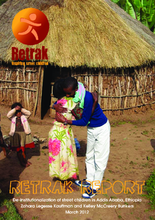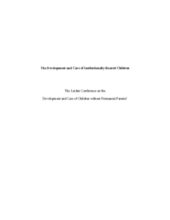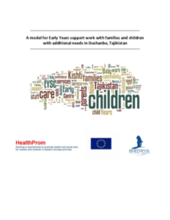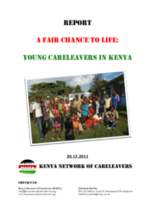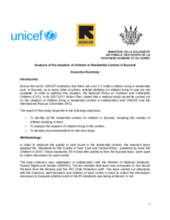Displaying 491 - 500 of 662
The study was carried out in Addis Ababa, Ethiopia. The purpose of this research is to utilise information collated from literature review as well as informant interviews and focus group discussions to identify good practices or help inform the development of such practices aimed at assisting street children currently residing in institutional care to return to a family-based environment.
This article sets out some of the evidence of the impact of institutionalisation on children in Europe.
This article briefly summarizes the literature on elements of research, practice, and policy pertaining to the development and care of children raised in institutions. It covers such children’s development while they reside in institutions and after their transition to adoptive or foster families.
This report is the result 4 of a two-year EU funded project “An Early Years Support Centre (EYSC) service in Dushanbe: Reducing poverty, empowering vulnerable families, strengthening partnerships and advocating for rights”. It outlines the model of support that was developed through the EYSC project in Dushanbe, the capital of Tajikistan.
Documenting the young people‘s own views of what has happened during the time of leaving care and afterwards, this study explores in-depth the experiences of care leavers during the dynamic phase following their separation from an institutional care setting.
This article provides an update on a series of projects that have highlighted the issue of institutionalization of children in Europe, arguing that babies and small children aged less than 3 years old, with or without disability, should not be placed in residential care without a parent or primary caregiver.
The report of this study responds to the objectives of identifying all the residential centres for children in Burundi, including the number of children residing in them; analysing the situation of children living in the centres and developing recommendations for the next steps
This study commissioned by the Ministry of Gender, Children, and Community Development and financially and technically supported by UNICEF and the Better Care Network, describes the situation of children in institutional care in Malawi.
This recent study by UNICEF in Armenia costed different types of residential care and community based services.
This paper, produced by RELAF, is part of a series of publications on children without parental care in Latin America: Contexts, causes and answers. This document, and others in the series, pertains to the broad topic of children without parental care and examines the particular situation of institutionalised children.

